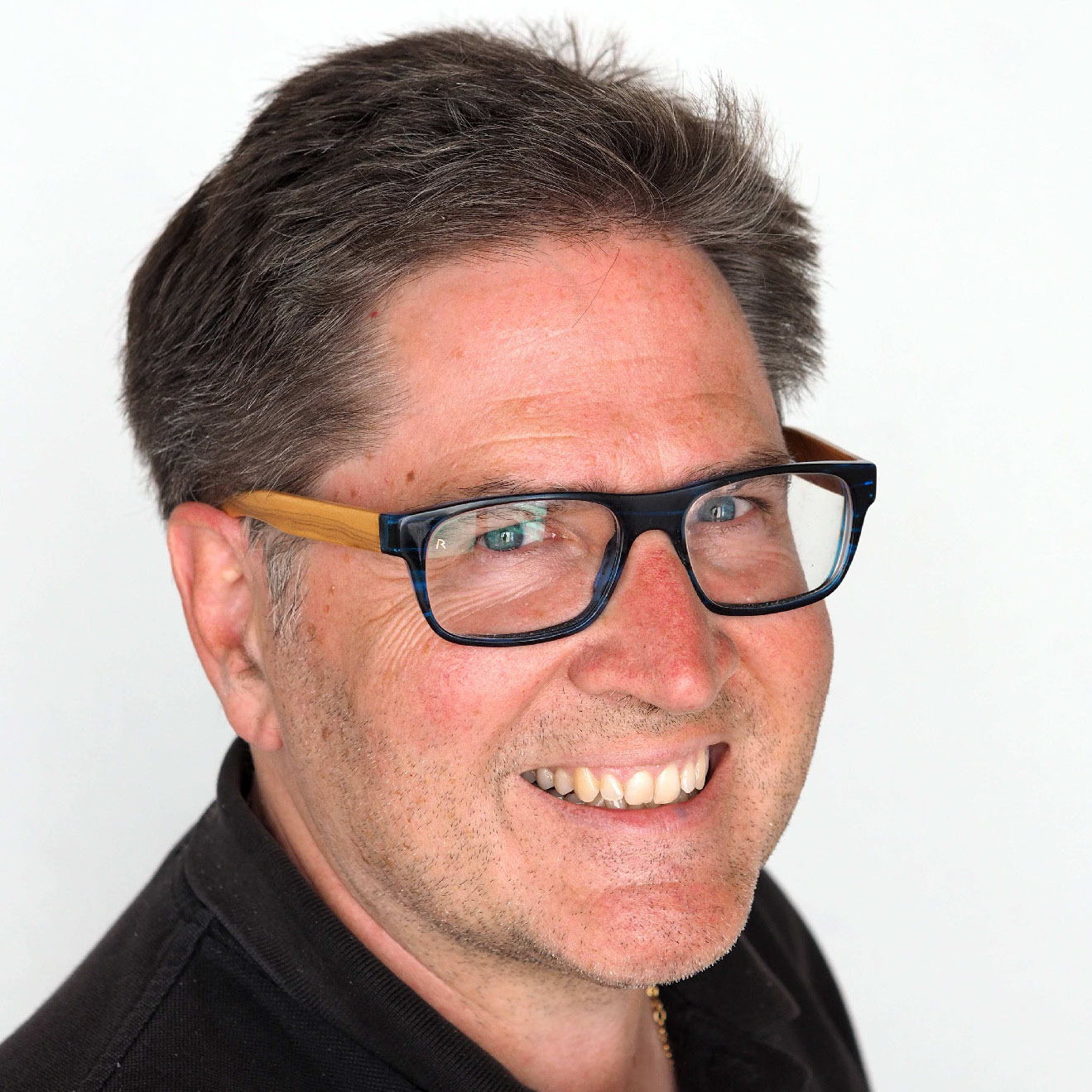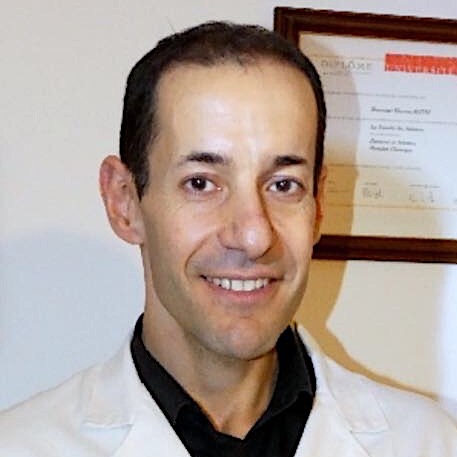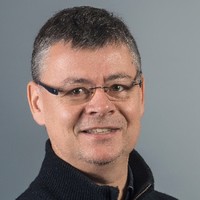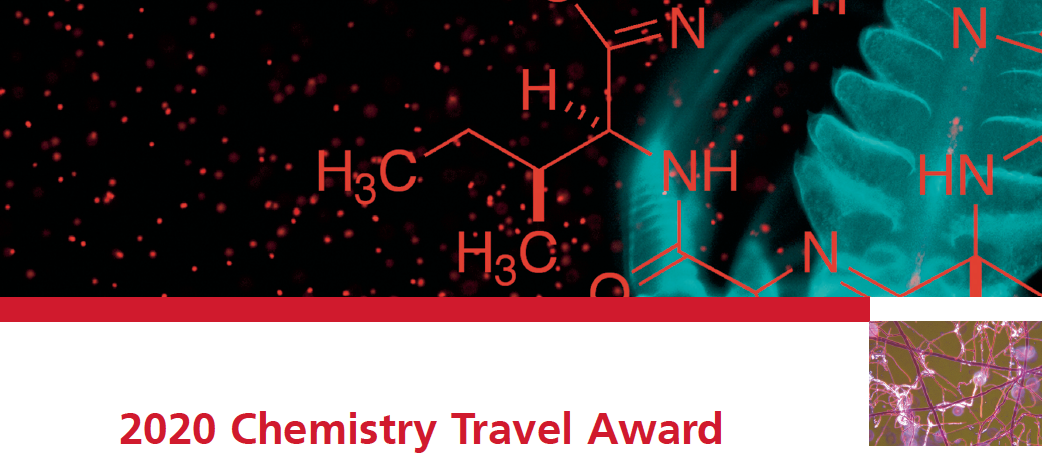SCNAT Newsletter, March 2020
Agrobiodiversität erhöhen für eine sichere Ernährung
Zur Nahrungsversorgung tragen heute weltweit nur noch etwa 80 Pflanzensorten bei. Um die Ernährung sicherzustellen, muss die Agrobiodiversität dringend steigen. Ein Faktenblatt der SCNAT beschreibt deren Rückgang, die Folgen und mögliche Massnahmen dagegen. Weiter
Energieforschung in Schweiz noch breiter ausrichten
Die Akademien der Wissenschaften Schweiz begrüssen den Entscheid des Bundesrates, das Energie-Förderprogramm Sweet umzusetzen. Sie empfehlen dem Bund aber, diesen Beitrag zur Realisierung der Energiestrategie 2050 noch stärker transdisziplinär auszurichten. Weiter
21st Swiss Global Change Day (SGCD) in Bern
The SGCD looks beyond the horizon of climate and global change research. Internationally well-known experts cover a broad range of topics. The event is organized by ProClim, the Forum for Climate and Global Change of SCNAT and takes place on 7 April 2020 in Bern. More
«Wir überwinden die Einbahnstrasse Forschung – Praxis»
Von unpersönlichen Siedlungen gezeichnete Landschaften, emotionale Wildtierdebatten und Urbanität in den Alpen – der Bedarf an Forschungs- und Praxiswissen ist unbestritten. Deshalb bündelt die SCNAT seit einem Jahr Wissen im Forum Landschaft, Alpen, Pärke zum grössten Wissensnetz zu Natur- und Kulturlandschaften. «Praxis und Wissenschaft müssen sich auf Augenhöhe begegnen», findet Felix Kienast, der Präsident des Forums. Weiter
Chemistry Travel Award 2020: Jetzt bewerben!
Mit dem Chemistry Travel Award zeichnet die Plattform Chemie der SCNAT und die Schweizerische Chemische Gesellschaft herausragende Doktorandinnen und Doktoranden der Chemie aus und unterstützt deren Teilnahme an internationalen Konferenzen. Anmeldeschluss ist der 31. März 2020. Weiter
Tagungsbericht zur SWICOB 20 «In Biodiversität investieren» ist online
Der Bericht zum Swiss Forum on Conservation Biology (SWIFCOB) 2020 zum Thema «In Biodiversität investieren» und alle Referate sind nun online verfügbar. Rund 230 Wissenschaftlerinnen, Vertreter der Finanz- und Versicherungsbranche, Fachleute aus Verwaltung, Büros und NGOs sowie interessierte Politikerinnen und Politiker diskutierten an der Tagung darüber, wie Finanzierungs- und Investitionsentscheide die Biodiversität positiv beeinflussen können. Organisiert hat den Anlass das Forum Biodiversität der SCNAT. Weiter
Biodiversität zum Greifen nahe: Biology Week für neugierige Jugendliche
Die biologische Station Jaman (VD) öffnet für Gymnasiastinnen und Gymnasiasten aus der Schweiz ihre Türen. Vom 3. bis 7. August 2020 erhalten sie die Gelegenheit, in die Forschung von der Artenforschung von Pflanzen- und Tierarten einzutauchen. Begleitet werden sie von erstklassigen Forschenden. Organisiert wird die Biology Week von der Plattform Biologie der SCNAT. Anmeldeschluss ist der 30. April 2020. Weiter
Let's start to change what it means to do science in Switzerland!
The We Scientists 2035 workshops initiated by SCNAT call upon researchers to re-imagine a better, healthier research culture. A booklet summarises the first results and encourages you to start the conversation in your research environment. Let's begin to shape science together. What would your ideal research culture be? What will you do tomorrow to shape it? Read this booklet to gain inspiration on how to start this discussion and shape research culture at your institution. More
Prix de Quervain 2020 für Polarforschung: Jetzt bewerben!
Mit dem Preis für Polar- und Höhenforschung ehrt das Schweizerische Komitee für Polar- und Höhenforschung und die Kommission für die Forschungsstation Jungfraujoch junge Wissenschaftlerinnen und Wissenschaftler für herausragende Leistungen. 2020 zeichnen sie Master- oder Doktorarbeiten oder andere Forschungsprojekte im Bereich Polarforschung aus. Bis zum 30. April 2020 können Bewerberinnen und Bewerber ihr Dossier einreichen. Weiter
Prix Média 2020: Gesucht sind junge Talente und alte Hasen des Wissenschaftsjournalismus
Die Akademien der Wissenschaften Schweiz suchen neue Formen und Formate, über Forschung und Wissenschaft zu berichten. Der Prix Média Newcomer gibt jungen Interessierten, Studierenden und NachwuchsjournalistInnen oder -journalisten (bis 30 Jahre) eine Plattform. Die Bewerbung ist einfach: Junge Talente beschreiben ihre Idee, eine Jury wählt die drei originellsten Ideen aus. Zur Umsetzung werden drei Recherche-Beiträge von je 3000 Franken vergeben. Die Newcomerin oder der Newcomer wird in einem Public-Voting gewählt und gewinnt nochmals 4000 Franken. Anmeldeschluss ist der 30. April 2020. Beim Prix Média für exzellenten Wissenschaftsjournalismus gibt es dagegen keine Altersgrenze. Beiträge sind hier bis zum 15. Mai 2020 einzureichen. Weiter
Workshop: Geo-chrono-logique!
Welche Methoden und Werkzeuge eignen sich, um Erdgeschichte einem breiten Publikum näherzubringen? Dies vermitteln Fachleute an einem Workshop am 27. April 2020 in Neuenburg. Die Veranstaltung wird von der Plattform Erlebnis Geologie organisiert, zu deren Trägerschaft die SCNAT gehört. Sie findet auf Französisch statt. Anmeldeschluss ist der 27. März. Weiter
Science on Stage Switzerland: Austausch zur Mint-Förderung
Am 16. März 2020 organisiert Science on Stage Switzerland in Genf einen Workshop. Science on Stage fördert den naturwissenschaftlich-technischen Unterricht und bietet Lehrpersonen aller Schulstufen und Landesteile Ideen für ihren Unterricht. Am Workshop tauscht sich die Schweizer Delegation, die 2019 am Festival Science on Stage Europe in Portugal teilgenommen hat, mit interessierten Lehrerinnen und Lehrern über ihre Erfahrungen aus. Die Veranstaltung ist auf Französisch. Anmeldeschluss ist der 6. März. Weiter
Abnehmende Motivation für die Schule
Gymnasiastinnen und Gymnasiasten verlieren im Lauf ihrer Schulzeit kontinuierlich an Motivation. Das zeigt eine Studie, die die Plattform Mathematik, Astronomie und Physik der SCNAT unterstützt hat. Allerdings ist der Verlauf weniger dramatisch als vermutet. Stärkere Abnahmen gab es teilweise in der Mathematik (vor allem bei Mädchen) und im Französisch und Deutsch (vor allem bei Jungen). Weiter
Politikstipendien für Wissenschaftlerinnen oder Wissenschaftler
Die Stiftung wissenschaftliche Politikstipendien vergibt per September 2020 zwei Politikstipendien für junge Wissenschaftlerinnen oder Wissenschaftler. Die Stipendien ermöglichen Abgängerinnen und Abgänger der Schweizer Hochschulen aus allen Fachbereichen und Disziplinen, die politischen Prozesse im Parlamentsgebäude unmittelbar kennenzulernen. Die Bewerbungsfrist läuft bis 9. März 2020. Weiter
Winners of the SCS Industrial Science Awards 2020
It’s our pleasure to announce the winners of the 2020 SCS Industrial Science Awards. We would like to sincerely congratulate the three winners and we are looking forward to the award lectures that will take place on the occasion of the SCS Fall Meeting at University of Bern, Von Roll Campus on August 24 and 25, 2020.
SCS Senior Industrial Science Award 2020
The prize is given to honor very successful and established investigators with outstanding achievements over many years. The winner receives a certificate and a cash check of CHF 10’000.

Dr. Frank Petersen, Novartis Pharmaceuticals AG, Basel,
is awarded in recognition of his outstanding contributions in the field of natural product research over three decades that includes the investigations for several products on the market or in clinical evaluation, the integration of natural product based scaffolds classes in chemical biology for the identification of novel targets, but also the partnerships in microbial sourcing and in accessing isolated plant metabolites in Africa, China, and Thailand.
and
 Dr. Hasane Ratni, F. Hoffmann-La Roche, Basel,
Dr. Hasane Ratni, F. Hoffmann-La Roche, Basel,
is awarded in recognition of his outstanding contributions to medicinal chemistry and his track record of delivering successful clinical development candidates resulting in five molecules entering human clinical trials. This includes the seminal work on RNA interaction with small molecules leading to the discovery of risdiplam.
Past winners of the Senior Industrial Science Award
2019: Dr. Fabrice Gallou, Novartis
2018: Dr. Clemence Lamberth, Syngenta,
2017: Dr. Emmanuel Pinard, Roche and Dr. Thomas Netscher, DSM
2016: Dr. Eric Francotte, Novartis and Prof. Peter Nesvadba, BASF
2015: Dr. Michelangelo Scalone, Roche
2014: Dr. Werner Neidhart, Roche
2013: Dr. Ian Lewis, Novartis and PD Dr. Werner Bonrath, DSM
SCS Industrial Science Award 2020
The prize is given to honor successful investigators with outstanding achievements. The winner receives a certificate and a cash check of CHF 7’000.

Dr. Denis Jacoby, Firmenich SA, Geneva,
gets the award to honor his outstanding achievements at Firmenich especially the development of major new processes for several key perfumery ingredients that are manufactured on multi MT scale today.
Past winners of the Industrial Science Award
2019: Dr. Christoph Boss, Idorsia
2017: Dr. Richard Sedrani, Novartis
2016: Dr. Martin H. Bolli, Actelion and Dr. Andreas Herrmann, Firmenich
2015: Dr. Dietmar Hüglin, BASF
2014: Dr. Andreas Natsch, Givaudan and Dr. Wolfgang Jahnke, Novartis
2013: Dr. Mark Rogers-Evans, Roche
| * |
This award program was implemented in 2013 by the Swiss Chemical Society in collaboration with industrial partners and supporters to honor successful industrial scientists working in Switzerland. The program targets scientists from companies of any size working in the field of chemistry or chemical related sciences. |
* |
David Spichiger, SCS
05.03.2020
2020 Chemistry Travel Award

The «Platform Chemistry» of the Swiss Academy of Sciences (SCNAT) and the Swiss Chemical Society (SCS) announce the 2020 «Chemistry Travel Award».
The award includes a contribution of CHF 1000 towards the cost of an active participation (poster or oral presentation) at an international conference between 15 May 2020 and 14 May 2021 in any field of the chemical sciences. Up to 45 awards will be given to selected doctoral students from Swiss research institutions. Selection will be based primarily on scientific accomplishments and on the submitted conference abstract.
Applications must include all of the following:
- Conference announcement
- Scientific conference abstract
- Curriculum vitae and list of publications
- Signed letter of recommendation from the PhD advisor
The application package (as a single PDF file in the above order) should be submitted using the online application form before the deadline of 31 March 2020.The award can only be won once in a lifetime – winners of previous years are excluded.There is no limitation of winners per research group.
Further information as well as the application form can be found at: www.chemistry.scnat.ch/travel_award
David Spichiger, SCS
19.02.2020
Job Offer ETHZ: Assistenzprofessur (Tenure Track) für Anorganische Chemie
Im Departement Chemie und Angewandte Biowissenschaften (www.chab.ethz.ch) der ETH Zürich ist am Laboratorium für Anorganische Chemie (LAC) (www.lac.ethz.ch) eine
Assistenzprofessur (Tenure Track) für Anorganische Chemie
zu besetzen. Die Forschungsgebiete des LAC umfassen die Synthese und Charakterisierung von molekularen und nanoskaligen anorganischen Verbindungen sowie die Aufklärung von komplexen Reaktionssystemen, die mit hochauflösenden Methoden erforscht werden.
Die neue Assistenzprofessur soll ein international kompetitives Forschungsprogramm im Bereich der Hauptgruppenelementchemie, der Materialchemie, der Festkörperchemie, der theoretischen Chemie, oder der Entwicklung physikochemischer Methoden aufstellen. Eine Kombination dieser Forschungsfelder ist erwünscht. Es wird erwartet, dass Interdisziplinäre Forschungsprojekte an der Schnittstelle von anorganischer Chemie und Physik, den Material- oder Biowissenschaften entwickelt werden können.
Die enge Zusammenarbeit mit anderen theoretischen und experimentellen Gruppen an der ETH Zürich soll angestrebt werden. Die zukünftige Professorin bzw. der zukünftige Professor engagiert sich in der Lehre auf dem Gebiet der Anorganischen Chemie und der Organometallchemie auf Bachelor- sowie Masterstufe.
Assistenzprofessuren dienen der Karriereförderung junger Wissenschaftlerinnen und Wissenschaftler. Das Tenure Track-Verfahren an der ETH Zürich ist mit denjenigen anderer erstklassiger internationaler Universitäten vergleichbar. Engagement in der Lehre sowie die Fähigkeit eine Forschungsgruppe zu führen werden erwartet.
Bitte bewerben Sie sich online: www.facultyaffairs.ethz.ch
Bewerbungen mit Lebenslauf und Publikationsliste, einer Beschreibung der beabsichtigten Forschungs- und Lehrtätigkeit sowie der drei bedeutendsten Leistungen sind bis zum 15. April 2020 in Englisch einzureichen. Das Anschreiben ist an den Präsidenten der ETH Zürich, Prof. Dr. Joël Mesot, zu richten. Die ETH Zürich setzt sich für Chancengleichheit, die Erhöhung des Frauenanteils innerhalb der Professorenschaft, die Bedürfnisse von Dual-Career-Paaren sowie die Vereinbarkeit von Beruf und Familie ein.
David Spichiger, SCS
14.02.2020
Newsletter SCNAT, 01/2020
Chemical Landmark für Basel zu Ehren von Paracelsus
Paracelsus revolutionierte die Medizin und ist ein Wegbereiter der modernen Biochemie. Vor fast 500 Jahren praktizierte und lehrte er in Basel. Das Haus Zum Vorderen Sessel, wo er unter anderem arbeitete, wird nun als historische Stätte der Chemie ausgezeichnet. Weiter
Initiative zur Forschung über die Nachhaltigkeit
Die nachhaltige Entwicklung stellt einen strategischen Schwerpunkt der Akademien der Wissenschaften Schweiz dar. Eine Initiative der SCNAT bringt wichtige Akteurinnen und Akteure zusammen, um Prioritäten für die zukünftige Schweizer Nachhaltigkeitsforschung zu entwickeln. Weiter
Wie Forschung in Konfliktgebieten gelingt
Möchte die Wissenschaft einen Beitrag zu den globalen Herausforderungen leisten, muss sie sich auch in fragilen und von Konflikten geprägten Gegenden bewegen. Wie sich Forscherinnen und Forscher in Konfliktgebieten verhalten sollen, zeigen neue Richtlinien der KFPE. Weiter
2. Schweizer Landschaftskongress: Aufruf für Kongressbeiträge
Am 2. Schweizer Landschaftskongress vom 19. bis 20. Oktober 2020 in Lausanne geht es um Grenzen – im Raum und in den Köpfen. Unter dem Motto «Dialog über Grenzen hinweg» werden Grenzen überwunden und damit die Zusammenarbeit für die gemeinsame Weiterentwicklung der Landschaft angeregt. Für die Parallelveranstaltungen und den Markplatz gesucht sind strittige Beiträge von Tandems oder Kleingruppen aus Politik, Praxis, Forschung und Lehre, die Grenzen thematisieren oder grenzüberschreitend denken. Sind Sie ein eingespieltes Team oder unversöhnliche Gegnerinnen und Gegner? So reichen Sie Ihren Vorschlag jetzt ein. Weiter
Young Faculty Meeting 2020: Beyond research – components to success
The Platform Chemistry of SCNAT invites young professors and group leaders in chemistry to the next Young Faculty Meeting (YFM) held on 12 February 2020 in Bern. The YFM was set up to promote scientific exchange and networking among young academics in chemistry in Switzerland. Please register before 4 February. More
Wasserressourcen und alpine Flüsse: Anpassung an die Herausforderungen des Klimawandels
Die hoch gelegenen wasserwirtschaftlich bedeutenden Einzugsgebiete sind auch als erstes vom Klimawandel betroffen. In Abstimmung mit den lokalen Politikerinnen und Akteuren müssen Anpassungsstrategien entwickelt werden, um einen sparsamen Umgang mit den Wasserressourcen und eine gute Funktionsfähigkeit der alpinen Flüsse zu gewährleisten. Die Konferenz «Wasserressourcen und alpine Flüsse» will konkrete Schritte für zukünftige Massnahmen unter Einbindung der Alpenkonvention und aller relevanten Stakeholder in den Alpen anstossen. Sie findet am 18. und 19. Februar 2020 im französischen Annecy statt. Anmeldeschluss ist 11. Februar. Weiter
Symposium zur Erinnerung an Jean-Pierre Blaser
Zu Ehren des im August 2019 verstorbenen Schweizer Physikers Jean-Pierre Blaser findet am 29. Februar 2020 an der ETH Zürich ein Symposium statt. Blaser half mit, die Teilchenphysik als Forschungsgebiet in der Schweiz zu etablieren. Er war Gründungsdirektor des Schweizerischen Instituts für Nuklearforschung (SIN) und des daraus hervorgegangenen Paul-Scherrer-Instituts (PSI). Das Symposium wird unter anderem von der Schweizerischen Physikalischen Gesellschaft organisiert, die Mitglied der SCNAT ist. Weiter
Transdisziplinarität als institutionelle Herausforderung für Universitäten
Viele gesellschaftliche Herausforderungen erfordern eine Zusammenarbeit über Disziplinen hinweg. Universitäten sind dabei besonders gefordert. An einer Fachtagung, die das Netzwerk für transdisziplinäre Forschung (td-net) mitorganisiert, diskutieren Vertreterinnen und Vertreter von Wissenschaft, Wissenschaftsmanagement, Fördermittelgebern und wissenschaftsnahen Organisationen am 24. März 2020 in Berlin ihre Erfahrungen mit der Institutionalisierung von Transdisziplinarität in universitären Strukturen. Anmeldung ist bis zum 15. Februar 2020. Weiter
Massive open online course on principles, processes and applications of transdisciplinarity
Together with seven universities and institutes of higher education, the Network for Transdisciplinary Research (td-net) and the Commission for Research Partnerships with Developing Countries (KFPE) coordinated and co-produced the first massive open online course (mooc) on transdisciplinary research. The course starts on 30 March 2020 and presents transdisciplinary research as a living experience. With a basis on sound theoretical and methodological background, five outstanding projects illustrate promising different ways of dealing with complex societal challenges. The course inscription is free. More
Neues Webdossier zum Klimawandel für Schulen
Das Thema Klimawandel soll vermehrt Eingang in die Ausbildung von Lehrerinnen und Lehrern und in die Unterrichtspraxis finden. Mit diesem Ziel haben sich verschiedene Akteurinnen und Akteure aus Bildung und Klimaforschung – darunter das Forum für Klima und globalen Wandel (ProClim) – an einen Tisch gesetzt. Entstanden ist ein Webdossier, das Wissen rund um den Klimawandel für die verschiedenen Bildungsstufen bereitstellt. Weiter
Wasser und Landwirtschaft – Wechselwirkungen und Zielkonflikte
Die Landwirtschaft beeinflusst den Wasserhaushalt und die Wasserqualität in hohem Mass. Im Gegenzug ist die Verfügbarkeit von Wasser Grundbedingung für jede landwirtschaftliche Nutzung. Diese Abhängigkeit führt zu Konflikten: Wie viel Wasser braucht die Landwirtschaft? Wem gehören Gewässerraum und Schutzzonen? Und wie können Gewässer effizient geschützt werden? Am 27. März diskutieren Betroffene und Fachpersonen in Neuenburg, wie diese Konflikte lösungsorientiert angegangen werden sollen. Die Tagung mit Podiumsdiskussion wird von der Schweizerischen Hydrologischen Kommission (CHy) der SCNAT organisiert. Jetzt in die Agenda eintragen! Weiter
Call for events for the International Day of Light
Unesco celebrates every year on 16 May the International Day of Light (IDL). It is a global initiative that provides an annual focal point for the continued appreciation of light and the role it plays in science, culture and art, education, and sustainable development. The Platform Mathematics, Astronomy and Physics of SCNAT is one of the national nodes that are organising local campaigns, activities and events. Join in with your own project, be it a lecture or an open day to visit your lab, your school, your museum… More
a+ und SCNAT mit gemeinsamem Corporate Design
Die Akademien der Wissenschaften Schweiz und die Akademie der Naturwissenschaften treten seit Anfang 2020 unter einem gemeinsamen Corporate Design auf. Damit machen sie die seit Jahren verstärkte Zusammenarbeit und transdisziplinäre Ausrichtung sichtbar. Weiter
Page 50 of 299


